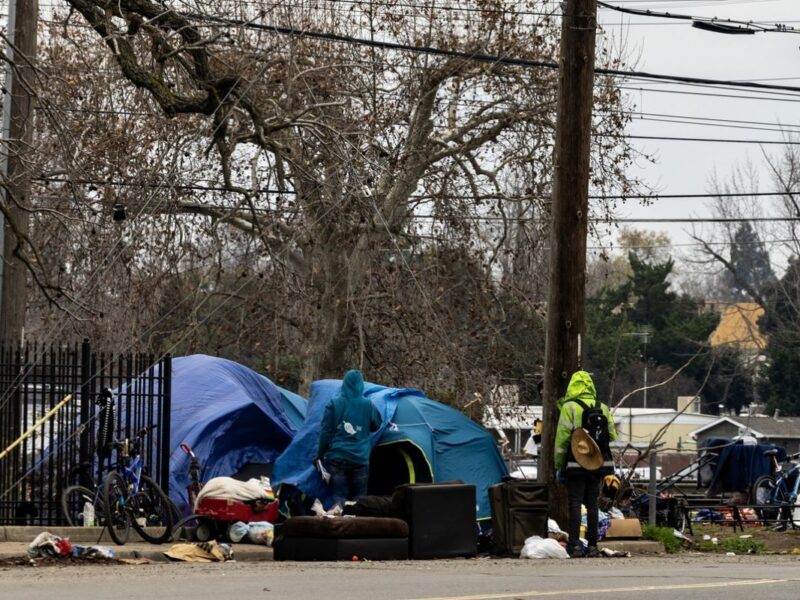American cities have tried to combat homelessness in many different ways over the years, all with varying levels of success. But the problem persists because the issue’s root is still there – greed.
Housing can’t be both a human right afforded to everyone and a profitable speculative investment. Naturally, those in power would prefer to have the profits.
To end the housing affordability crisis, we need the federal government to step in and stop corporations from buying up all our housing, only to sell it back to the few who can afford it at an outrageous markup.
A Rising Nation of Renters?
There is a lot of talk about generational differences in homeownership. A new spin is being put on the data rather than acknowledging that too many people would like to own homes but simply can’t afford them.
Personal finance gurus and talking heads on the news both extol the benefits of renting. They say people must want the freedom and flexibility renting offers since more and more people are staying lifelong renters.
But another term for this “freedom and flexibility” everyone’s suddenly going on about is housing instability and volatility. The difference between one and the other is simply a function of how much of a financial cushion you have to work with when something goes wrong.
The average renter isn’t moving to a new luxury apartment in a new city every six months or opting out of rent entirely as they travel the world each summer. They’re paying half their income for basic housing with overly restrictive rules while trying in vain to get their landlord to perform necessary repairs – only to be kicked out at the end of the lease due to an unaffordable rent increase.
This “lifestyle” isn’t a choice or personal preference for most renters. They simply have no way of breaking into a housing market that has become so out of control.
The narrative that young people rent because they want to stay footloose and fancy-free only normalizes exploitative housing practices and diverts attention away from the corporate landlords who want to own everything just to rent it back to us.
Where Has All the Housing Gone?
No matter where you live, I’m willing to bet that your local housing market is “on fire” right now. Competition for housing is heating up in all but the most rural places across America and abroad.
Those who aren’t priced out of the market entirely have to make wild maneuvers like offering way over the asking price, waiving inspections, and paying thousands in nonrefundable fees just to have their offers considered.
This is all because regular people are forced to compete for housing with huge and growing corporations that want to add to their investment portfolios.
These corporate buyers focus on lower-priced housing, often gobbling up entire neighborhoods to be turned into rentals. This strategy leaves little or nothing for first-time buyers looking for stable housing, leads to rising rental prices, and contributes to homelessness as people become priced out of housing entirely.
Wall Street Gambles with the Roofs Over Our Heads
For some people, a home is just a home. It’s a stable place to live, store your belongings, and decorate, and if you’re lucky, its value may increase over the years you spend there.
For other people, a home is a token. Their goal is to amass as many of these tokens as possible so they can one day cash them out big. They don’t seem to care that their pursuit of payday is causing a cascade of human suffering, ending in the homeless encampment they scoff at every day on their way to amass even more tokens.
It doesn’t matter if the token is the food we eat, the medicine we rely on, or the homes where we live. To them, it is simply an investment. As long as there’s a possibility of it being worth more later, they’ll buy it all up now and create an artificial scarcity where prices soar, and poor people have to go without as they hoard their trove like dragons.
Corporations Hoarding Housing Is Not a Surprising Outcome
Corporations aren’t people. They have no morals, compassion, or guilt for the harm they cause. Just like water always follows the path of least resistance, we should expect corporations to follow the path of maximum profit without regard for anything else.
Because we know that’s what they’ll do, our government needs to step in to limit the harm that can cause. Something must be done, whether it’s by disincentivizing harmful activities and making them less profitable so corporations lose interest or by directly banning or limiting their ability to do them.
Many bright minds have offered suggestions such as a cap on the number of single-family homes one corporate entity can own, a limit to the amount of profit that can be extracted from renters, or an expansion of programs that give average people a fighting chance at homeownership.
Now, we need our government to step in and act on our behalf rather than being swayed by the deep pockets of corporate lobbyists. Contact your legislators today to let them know what you expect from them.
In the meantime, the best we can do is band together. If you already own a home, don’t sell to corporate landlords! Taking a little extra profit now is just cementing their hold on the market and will come back to bite you before you know it. If you want to take extra steps to keep housing affordable, you could connect with your local community land trust and sell or donate your property to them so that it remains affordable in perpetuity.













